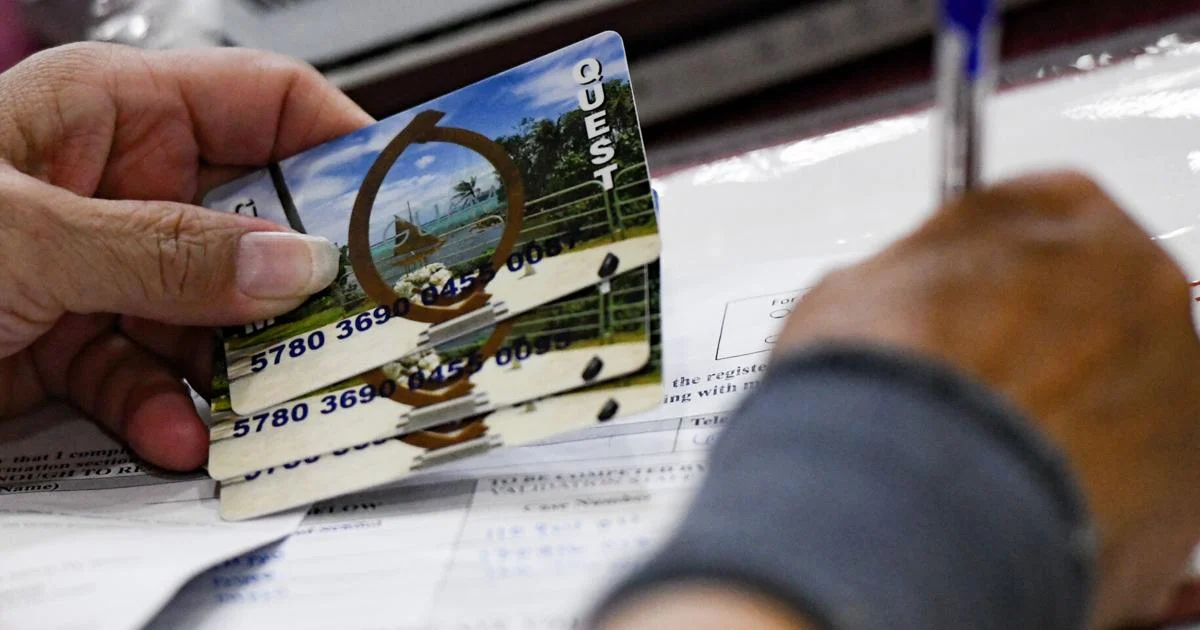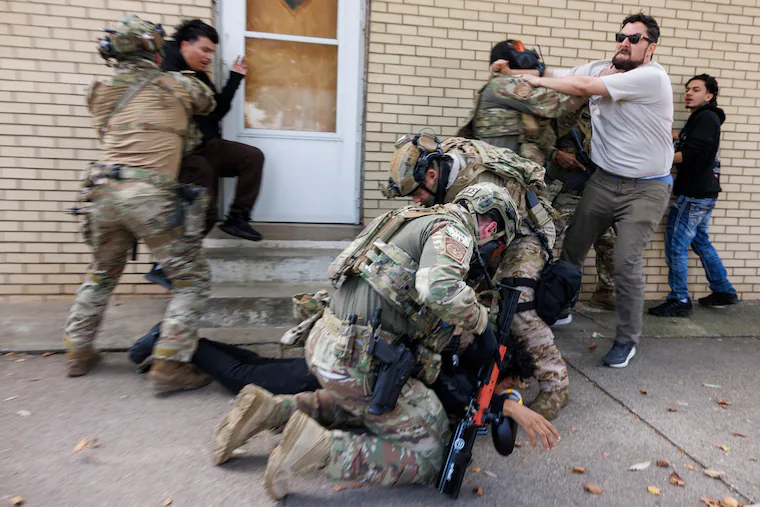Copyright guampdn

Able-bodied residents aged 55 to 64 with no dependents, veterans, the homeless and others will soon have to comply with new federal work requirements to get regular Supplemental Nutrition Assistance Program, SNAP, benefits—but they won’t come just yet for Guam. Residents around the nation will have to comply with the expanded work requirements for SNAP come Nov. 1, even as federal funding for the food assistance program dries up due to the ongoing government shutdown. Guam residents, however, won’t be subject to the requirements until Feb. 28, 2026, thanks to an existing waiver, the office of Del. James Moylan stated Thursday. More than 43,000 residents, close to a third of Guam’s population, get help paying for their groceries each month through SNAP and the Women, Infants, and Children, WIC, program. Provisions in the controversial One, Big Beautiful Bill Act signed by the president on July 4 expand work requirements for SNAP to groups that weren’t previously covered, the Pacific Daily News reported. Federal rules have long required that able-bodied adults without dependents, aged 18-54, complete at least 80 hours of work or community service a month. If they don’t, SNAP benefits can only be received for three months out of the year. SNAP changes from the Big Beautiful Bill will increase the age cutoff to 64, according to Moylan’s office. Previously exempted groups like veterans, the homeless and others will also have to comply. Though the changes were originally described as phasing in through fiscal year 2027, they will take effect by Nov. 1 for the nation, the delegate’s office stated Thursday. Residents from nations with Compacts of Free Association—the Federated States of Micronesia’s Pohnpei, Chuuk, Yap and Kosrae; the Marshall Islands; and Palau—will still be eligible for the program, according to the office. But there will be changes in eligibility for other non-citizens. ‘Guam Food Assistance Program’ Department of Public Health and Social Services Director Theresa Arriola on Thursday noted that “nothing is going to kick in on Nov. 1” because there’s no SNAP funding for residents due to the shutdown. Local lawmakers passed and the governor signed into law a bill to provide $13.1 million in local funding to cover SNAP and WIC. It’s now the local “Guam Food Assistance Program,” which will last through the end of the month. Arriola, who pointed to poor communication with the federal government due to the ongoing shutdown, was not familiar with the Feb. 28 date put out by the delegate’s office. She previously pointed to a fiscal 2027 rollout for the changes, which was widely reported. Arriola noted that Public Health was only informed last week that federal SNAP funding would stop on Nov. 1, and had flown to Washington, D.C. for updates on federal programs. But she said Public Health will be notifying SNAP recipients in writing of any changes to their benefits coming down the line. She encouraged SNAP recipients to stay up to date and keep in contact with Public Health. “People need to check their mailboxes more often. People need to keep their appointment with our SNAP office, making sure they’re up to date with their renewals,” she said. If they don’t see a notice in writing, they will be informed when their annual renewal comes around. “It is a federal program, and those who are qualified have their responsibility to do their part,” she said. Recipients have called up before about their benefits being discontinued, only to find out that they failed to keep an appointment. “I’m going to just emphasize that the Trump administration is very, very focused on timeliness and fraud, waste and abuse being reduced. So everybody just needs to do their part,” she said. There will be more scrutiny to ensure that people are not misusing their benefits, and are using it for food that has nutritional value. In the current climate, Public Health does not want people losing their benefits, she said. People inappropriately or fraudulently abusing the program, will lose them. As for federal funding for SNAP, she said Public Health is prepared to provide food commodity services to residents, with help from local nonprofits, should the shutdown continue past this month. “There is no indication or even guessing when the shutdown is going to be lifted. The thing that we need to do is prepare for the worst and hope for the best,” she said. “And the hope of the best is really that hearts in Congress are moved because the holidays are coming.”



